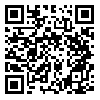Volume 1, Issue 1 (spring & summer- 2004)
2004, 1(1): 71-92 |
Back to browse issues page
Download citation:
BibTeX | RIS | EndNote | Medlars | ProCite | Reference Manager | RefWorks
Send citation to:



BibTeX | RIS | EndNote | Medlars | ProCite | Reference Manager | RefWorks
Send citation to:
Abbasi H. The Declaration of Written Language. Journal title 2004; 1 (1) :71-92
URL: http://jls.khu.ac.ir/article-1-805-en.html
URL: http://jls.khu.ac.ir/article-1-805-en.html
Teacher Training , h.abbasi@khu.ac.ir
Abstract: (8102 Views)
The universal culture has turned about some binary elements.
An Obvious indication of this state is the contrast between spoken and written language, which has, in turn, influenced the human culture to the extent that Derrida considers it as the source of errors in the two-millennium tradition of Western culture. Any reform in the world communities has been attributed to the above contrast and the so- called revolution of the written language. In Islamic culture, the revelation of the Holy Quran is considered as the first revolution of the written language and Adonis has beautifully illustrated the written / spoken dialectic in the Islamic culture. In this declaration, he discusses the position and role of Rhetoric as an art of speech and explores rhetoric from various perspectives: substantial features, its functions, training and persuasion, ultimate goal and significance as well as its triadic underlying principles; commonly agreed upon by rhetoric scholar's composition, harmony and style. Also, it covers such topics as anatomy of rhetoric, its status in the Ignorance era and the Islamic age as well as its impact on Arabic poetry and rhetoric.
The paper proceeds with highlighting the major distinctive features of speech and prose and sheds lights on their functions as well as aesthetics.
An Obvious indication of this state is the contrast between spoken and written language, which has, in turn, influenced the human culture to the extent that Derrida considers it as the source of errors in the two-millennium tradition of Western culture. Any reform in the world communities has been attributed to the above contrast and the so- called revolution of the written language. In Islamic culture, the revelation of the Holy Quran is considered as the first revolution of the written language and Adonis has beautifully illustrated the written / spoken dialectic in the Islamic culture. In this declaration, he discusses the position and role of Rhetoric as an art of speech and explores rhetoric from various perspectives: substantial features, its functions, training and persuasion, ultimate goal and significance as well as its triadic underlying principles; commonly agreed upon by rhetoric scholar's composition, harmony and style. Also, it covers such topics as anatomy of rhetoric, its status in the Ignorance era and the Islamic age as well as its impact on Arabic poetry and rhetoric.
The paper proceeds with highlighting the major distinctive features of speech and prose and sheds lights on their functions as well as aesthetics.
Type of Study: Research |
References
1. ابن الاثیر، ضیاءالدین ابوالفتح نصرالله بن ابی الکرام محمد؛ المثل السائر فی ادب الکاتب و الشاعر (1-4)؛ تحقیق احمد الحوفی و بدوی طبانه؛ مصر، القاهره: مطبعه نهضه، 1959.
2. الجاحظ، ابوعثمان عمرو بن بحر؛ البیان و التبیین(1-4)؛ تحقیق عبدالسلام هارون؛ القاهره: مکتبهالخانجی، 1961.
3. القلقشندی، ابوالعباس احمد؛ صبح الاعشی فی کتابه الانشا؛ القاهره، 1961.
4. ابن الاثیر، ضیاءالدین ابوالفتح نصرالله بن ابی الکرام محمد؛ المثل السائر فی ادب الکاتب و الشاعر (1-4)؛ تحقیق احمد الحوفی و بدوی طبانه؛ مصر، القاهره: مطبعه نهضه، 1959.
5. الجاحظ، ابوعثمان عمرو بن بحر؛ البیان و التبیین(1-4)؛ تحقیق عبدالسلام هارون؛ القاهره: مکتبهالخانجی، 1961.
6. القلقشندی، ابوالعباس احمد؛ صبح الاعشی فی کتابه الانشا؛ القاهره، 1961.
Send email to the article author
| Rights and permissions | |
 | This work is licensed under a Creative Commons Attribution-NonCommercial 4.0 International License. |







